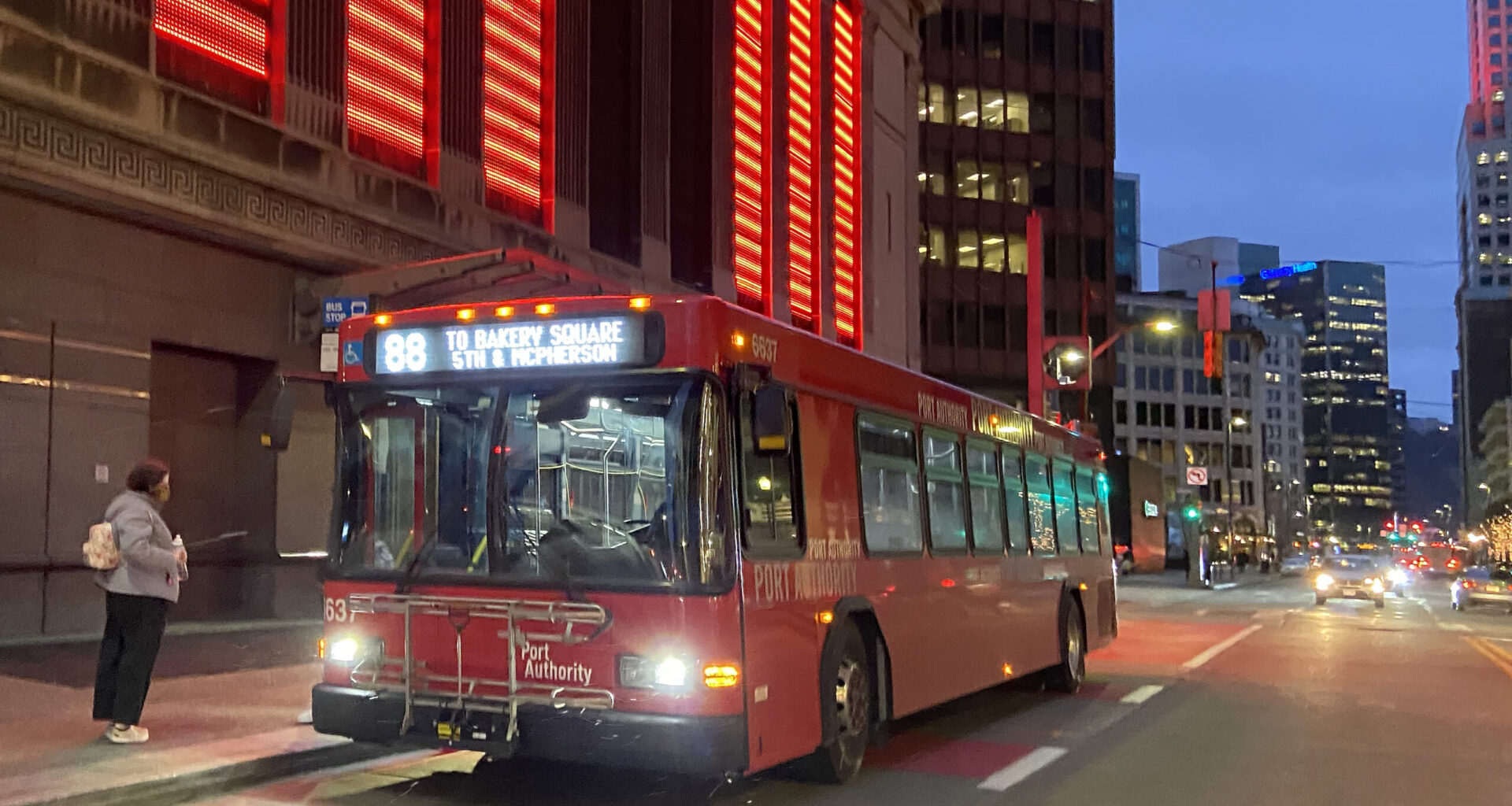Now that its immediate financial crisis has been averted, Pittsburgh Regional Transit has begun marketing its discounted bulk pass program to businesses, schools and apartment building owners.
The program, known as the PRTnerPass, was approved in November, but the agency held off a major push because it was facing a $100 million deficit and the possibility of cutting 35% of service unless its state subsidy increased. It would have been difficult to persuade groups to buy bus passes for a year when the agency couldn’t guarantee service beyond February 2026, CEO Katharine Eagan Kelleman said last week.
The subsidy hasn’t been increased, but the agency got a two-year reprieve from cuts when the state Department of Transportation approved using money awarded for capital projects to cover the operating deficit. That means service will remain stable for the next two years.
As a result, the agency last week began advertising the bulk program on the radio and sending information to about 9,000 businesses and schools that might be interested. Even before the formal solicitation, the agency has approved a contract for one group and has two others pending, Kelsey Shannon, deputy director of strategic initiatives, told a board committee earlier this month during a report on the agency’s discount pass programs.
Under the program, a sponsor such as a business, school or apartment owner can buy 31-day passes that usually cost $97.50 for $28 as long as they make them available to everyone in their group, commit to the program for a year and charge the recipient $28 or less. The program is open to riders in a group of 10 or more who are between 18 and 64 years old because younger riders already pay half fare and older riders are free.
“We were trying to stay more low-key” during the funding crisis, Shannon told the committee. Now, PRTner Pass is ready to go.
The board’s Finance Committee asked administrators to put together a breakdown of each discount program and the agency’s goal for enrollment.
The bulk pass programs have proven popular across the country, including at Sound Transit in Seattle, where more than 50% of riders use the bulk pass program. After 113 riders participated from four employers using a pilot program last year, the agency said the riders were “eager” for the program to continue, and about 50 employers had offered to be involved in the trial.
In an interview on Friday, Kelleman said she thinks the bulk pass program will be popular here, but it may be difficult to reach that level of saturation. The program is most popular in areas with transit frequency as often as 5 minutes or less, she said, something PRT isn’t close to meeting at this time.
In addition to cost, the positive aspects of the program include providing a benefit for the group, which can be a selling point to potential employees, easing traffic congestion and the need for parking facilities, and cutting pollution.
In addition to the three bulk pass participants PRT mentioned, the city of Pittsburgh is looking to provide bus passes as a free benefit to workers stationed Downtown. Mayor Ed Gainey’s proposed 2026 budget includes $275,000 to provide passes for an estimated 750 Downtown employees, which would be the largest in the program so far.
Legislation is expected to be submitted to Pittsburgh City Council with the budget authorizing an agreement with PRT to join the program.
“Making it easier for city employees to get to work and serve residents, while supporting PRT in helping people move around the city, is a win-win for everyone,” the mayor said in a prepared statement.
Councilwoman Barb Warwick said she is a strong advocate for the program.
“I look forward to making sure it stays in the budget,” Warwick said. “It’s good for the city to act as a best-practice leader for the region.”
Other pass programs
PRT’s U-pass program, where the agency negotiates a reduced price for colleges and universities, then students get unlimited passes, has been extremely popular.
Under the program, universities pay PRT a fee for each time a student uses the pass. Some colleges include the pass as part of an activity fee, and others charge students a reduced price individually.
But Allegheny Go, a program that provides half-fare rides for low-income riders through the Allegheny County Department of Human Services, continues to struggle for participants. The latest figures show 10,688 participants in the program that is open to about 57,000 households eligible for the Supplemental Nutrition Assistance Program. In an email response to questions, the agency said the program initially was only open to riders with smartphones, which made it difficult for many low-income riders to use.
Ed covers transportation at the Pittsburgh Post-Gazette, but he’s currently on strike. Email him at eblazina@unionprogress.com.



